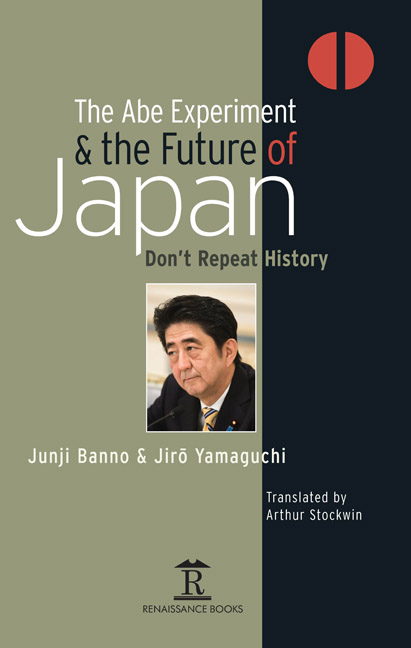Book contents
- Frontmatter
- Contents
- Foreword
- Translator’s Preface
- Conventions
- Chapter 1 Should the Aim be to Prevent Constitutional Revision?
- Chapter 2 Why was Post-war Pacifism Defective?
- Chapter 3 Is there a Political Elite in Japan?
- Chapter 4 Is the Liberal Democratic Party Really Tough?
- Chapter 5 Why Can’t We Tackle Reduction in Inequalities?
- Chapter 6 Where Should Japan Go From Here?
- Afterword
- Index
Foreword
Published online by Cambridge University Press: 30 April 2022
- Frontmatter
- Contents
- Foreword
- Translator’s Preface
- Conventions
- Chapter 1 Should the Aim be to Prevent Constitutional Revision?
- Chapter 2 Why was Post-war Pacifism Defective?
- Chapter 3 Is there a Political Elite in Japan?
- Chapter 4 Is the Liberal Democratic Party Really Tough?
- Chapter 5 Why Can’t We Tackle Reduction in Inequalities?
- Chapter 6 Where Should Japan Go From Here?
- Afterword
- Index
Summary
THE SUMMER OF 2014 is sixty-nine years from the conclusion of the Second World War. This year could be the ending of the post-war, or perhaps the beginning of a new pre-war.
When we see the illogical decision of the Abe Government to legitimize the use of collective defence, this is the kind of thought that comes to mind. Of course, we must not consider the post-war to have ended. So our starting point is to comprehend the course of our history since the 1930s, and in particular its course in the post-war. It is, therefore, necessary to affirm our determination not to repeat history, as the title of this book indicates. In my opinion, this dialogue is a golden opportunity to pursue this aim.
I first came to realize just how interesting is Japan's political history when I read Professor Banno's book. His book Nihon kindai shi (Japan's Modern History), published by Chikuma Shinsho, was voted out first in a poll about books on politics conducted in 2012 by the Shūkan tōyō keizai (Weekly Oriental Economist). This indicates that many of its readers shared this view.
At the same time, I came to realize that in the conduct of politics, it was not only those exercising power that shaped history, but also those who failed or were defeated. In particular, I learned that before the war when human rights were severely constrained, many politicians and campaigners for democracy and equality did fairly well, and I gained the hope that in an age of democracy political reform was not likely to be impossible. This gives me much food for thought when I review contemporary Japanese politics,
Mr Odano Keimei of the publishers Iwanami Shinsho, who shared this kind of idea, acted as intermediary, so that on one occasion in November 2012, and on two occasions in April 2014, he provided the opportunity for a dialogue with Professor Banno. This book was constructed after substantial additions to, and revision of, the recordings.
It is now through dialogue with Professor Banno that for the first time I have reached the conviction that man only progresses through understanding failure.
- Type
- Chapter
- Information
- The Abe Experiment and the Future of JapanDon't Repeat History, pp. ix - xPublisher: Amsterdam University PressPrint publication year: 2016



